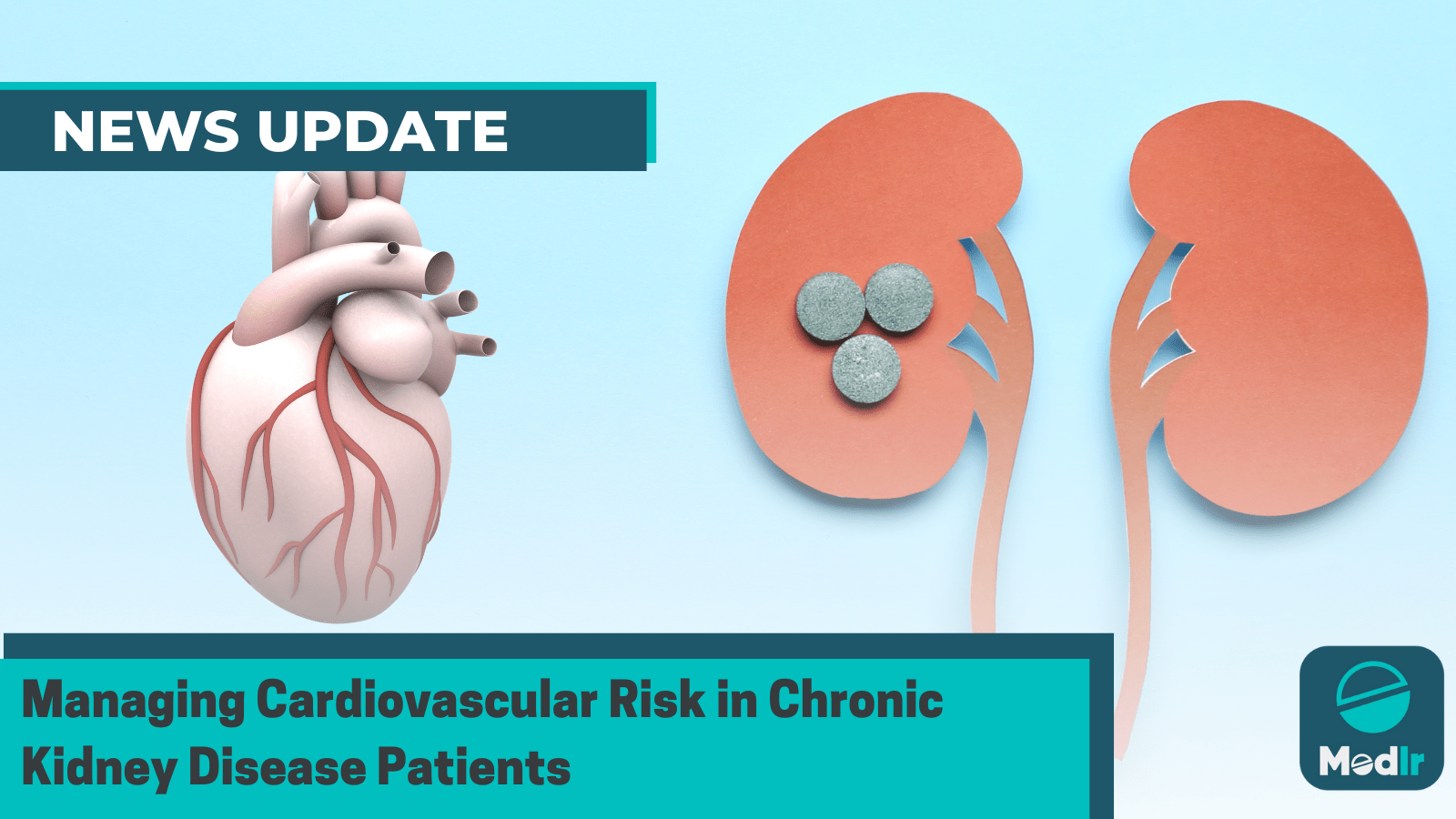Managing Cardiovascular Risk in Chronic Kidney Disease Patients
Written by Shaveta Arora
Advocating for early screening of chronic kidney disease to reverse the trend and improve patient outcomes. Discover the importance of identifying risk factors and proper screening management.

Scientific societies are advocating for screening at younger ages to reverse the trend and slow the progression of chronic kidney disease, which causes concern due to late diagnosis. Screening is applicable to nearly all patients seen in primary care, as they have risk factors for kidney disease.
During the 29th National Conference of General and Family Medicine of the Spanish Society for General and Family Physicians (SEMG), Dr. Teresa Benedito, a family doctor and member of the society's cardiovascular group, along with Dr. Roberto Alcázar, a nephrologist at the Infanta Leonor University Hospital in Madrid, presented a clinical case encountered in primary care. They used this case to strongly advocate for early screening of chronic kidney disease and discussed proper screening management.
The presentation adhered to the guidelines in the SEMG publication concerning the management and referral of patients with type 2 diabetes. Dr. Benedito emphasized the importance of asking whether patients presented risk factors for kidney disease during their visits. She stated that patients with these risk factors should not leave without undergoing a kidney screening. The factors in question included age older than 60 years, African heritage, family history of chronic kidney disease, decreased kidney mass, weight loss at birth, hypertension, diabetes, smoking, obesity, and low socioeconomic status.
For his part, Alcázar mentioned how these factors are similar to cardiovascular risk factors, because "the kidneys are a ball of vessels with double capillarization for purifying blood. They're the organs with the most arteries per unit of weight, so anything that can damage the arteries can damage the kidneys."
Reducing Cardiovascular Risk
Alcázar emphasized essential factors to consider while managing each of the cardiovascular risk factors. Regarding hypertension, the goal is to achieve blood pressure levels below <130/80 mm Hg, although recommendations may vary based on the consulted guidelines.
"KDIGO (Kidney Disease: Improving Global Outcomes) 2021 states that there is no evidence for monitoring diastolic blood pressure, only systolic blood pressure (SBP). If we measure it according to the standardized form, SBP should be less than 120 mm Hg, and if not, we would fall back on readings of 130/80 mm Hg."
Regarding lipid control, specifically low-density lipoprotein cholesterol, the staging chart indicates the following target levels: for patients at mild risk, levels should be kept below <100 mg/dL; for those at moderate risk, below <70 mg/dL; and for those at severe risk, below <55 mg/dL. Alcázar warned that hypertriglyceridemia "should only be treated with fibrates if it exceeds 1000 mg/dL. However, caution must be exercised as these drugs can interfere with creatinine excretion, leading to an increase."
Guidelines from KDIGO and the American Diabetes Association recommend that individuals with diabetes and chronic kidney disease should receive a sodium-glucose cotransporter-2 inhibitor if their glomerular filtration rate exceeds 20 mL/min, "which may contradict slightly what it says on the label. Also, if they have hypertension, they should take an angiotensin-converting enzyme inhibitor," said Alcázar. He added that "oral antidiabetics, including metformin, must be adjusted based on renal function if glomerular filtration rate is under 30 mL/min."
Act Immediately
When asked whether the course of chronic kidney disease can be changed, Alcázar responded with an emphatic yes and added that cardiovascular risk can also be substantially reduced. "As nephrologists, we don't have access to patients in early stages. But family doctors do. Hence, the importance of early screening, because going on dialysis at age 60 isn't the same as at 80." Currently, "scientific societies are encouraging authorities to screen for chronic kidney disease at earlier ages."
Regarding drug-based therapy, Alcázar said -
"Empagliflozin is not currently indicated for chronic kidney disease in adults." Two recent studies (DAPA-CKD and CREDENCE) highlighted the benefits of this sodium-glucose cotransporter-2 inhibitor in delaying kidney disease and reducing morbidity. In January, EMPA-KIDNEY presented a new perspective on nephroprotection for patients with chronic kidney disease, whether diabetic or not.
The study focused on patients with glomerular filtration rates between 20 and 40 mL/min without albuminuria or between 45 and 90 mL/min with albuminuria. Observing more than 6000 patients, it was found that empagliflozin "clearly reduced kidney disease progression, cardiovascular mortality, all-cause mortality, and the need for dialysis."